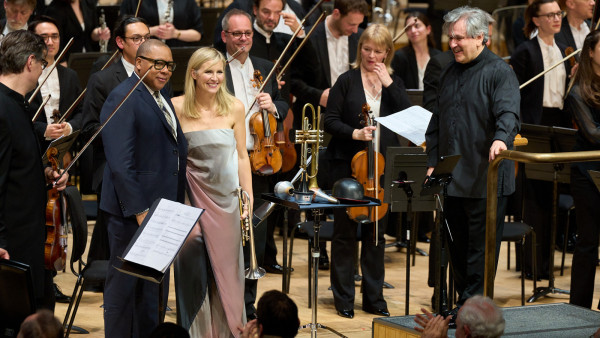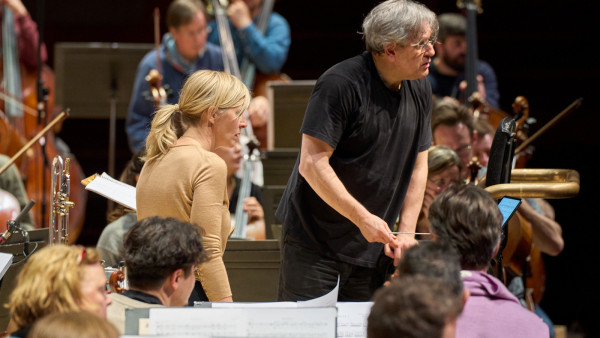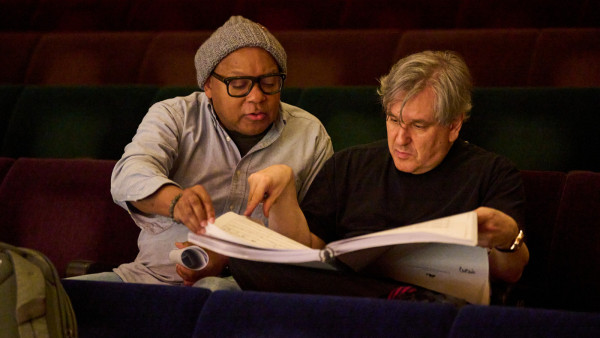LSO/Pappano review — a virtuosic Alison Balsom and sumptuous Ravel
It would be a dull soul who didn’t enjoy at least some aspects of Wynton Marsalis’s new Trumpet Concerto, especially as its UK premiere was delivered with such panache by Alison Balsom and the London Symphony Orchestra. The music exudes joy and energy throughout its six movements. And the virtuosic demands it makes on the soloist — from the Nellie the Elephant trumpetings that open the piece, through enharmonic trills, flutter tonguing, glissandos and mercurial passagework to the deft application of what seemed like 50 different mutes — are hair-raising. As is the stamina required. For 35 minutes Balsom hardly had a bar’s rest, and her technique never faltered.
All that said, for me the piece didn’t add up to much more than a collection of pastiches, mostly taking jazz and blues idioms from the mid-20th century and pumping them up with orchestral textures that were baggy and often too blaring even for a trumpet soloist. A lot of it was clearly intended to be playful, but the piece’s patchwork structure was hard to grasp and Marsalis’s own voice even harder to detect.
The programme note spoke of his wanting to pay tribute to the styles and personalities of fondly remembered trumpeters from different eras and genres. Along the way, however, he seems to have forgotten to include himself.
Antonio Pappano conducted the concerto with model efficiency, but what happened after the interval was in a different league of emotion, depth and inspiration. It was a sumptuous performance of Ravel’s Daphnis and Chloé, so vividly and dramatically characterised that the ballet seemed to play out in my mind’s eye as the piece progressed — and it has been decades since I saw it danced in the theatre.
Pappano brought remarkable clarity and precision to those little passages where Ravel seeks to mirror some tiny detail in the Greek myth. And player after player delivered ravishingly evocative solos. But it was the sheer sweep of the performance, and the luscious fullness of the climactic moments, that really drew one in. And what superb singing from the Tenebrae choir: almost another orchestra, so varied and subtle were their timbres.
by Richard Morrison
Source: The Times



